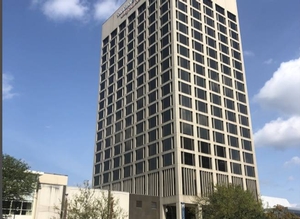Articles
The CARES Act: What Business Owners Need to Know
on April 6, 2020On March 27, 2020 Congress passed the $2 trillion-dollar stimulus bill, Coronavirus Aid, Relief, and Economic Security Act (“CARES Act”) to provide emergency assistance to individuals and businesses impacted by COVID-19.
Title I of the bill establishes emergency lending programs for small businesses.
Two new programs created by the CARES Act are:
1. Paycheck Protection Program
The Paycheck Protection Program (sometimes referred to as “PPP”) grants small business interruption funds to qualifying businesses impacted by COVID-19. The Small Business Administration (“SBA”) will administer PPP loans with lenders that are currently registered to administer 7(a) loans with the SBA (generally, commercial banks). Please note that not all banks are SBA-approved lenders. But there are efforts to expand qualified lending institutions to implement this program. The SBA will participate 100% in a loan under this new program, meaning the SBA will guarantee the loan. This program covers the period between February 15, 2020 and June 30, 2020 (the “covered period”).
Eligibility
The PPP increases eligibility for SBA funds, expanding beyond typical “small business concerns.” The following are eligible recipients:
Eligible recipients of the new Paycheck Protection loans will have to meet minimum borrowing criteria to receive funds. Lenders will evaluate whether:
Application or Documentation Requirements
As this is a new program, documentation standards are not yet available. Applicants will likely be required to demonstrate:
The maximum amount of any loan granted under the PPP is $10 million. Depending on the applicant’s business situation, the maximum loan amount will be equal to 2.5 times the average monthly payroll costs during February 15, 2019 – June 30, 2019. For any business not in business before June 30, 2019, the calculation will be based on payroll costs during the period of January 1, 2020 – February 29, 2020.
All Paycheck Protection Program loans have a maximum maturity of 10 years, the interest rate of a PPP loan may not exceed 4%, and loan fees and prepayment fees may not be imposed. Additionally, no collateral and no personal guarantees are required. All payments (including principal, interest and fees) will be deferred by lenders for a period between 6 months and 1 year, depending on the borrower’s circumstances.
Use of Funds
The funds from any PPP Loan must be used for the following allowable uses:
The Paycheck Protection loans are forgivable, but forgiveness is not automatic. Applicants must apply to their lender to seek loan forgiveness. The application must include:
2. EIDL Grants
The SBA already offers emergency injury disaster loans (“EIDLs”) which are not part of the CARES Act. Title I of the CARES Act adds emergency micro-grants to provide an immediate cash advance of up to $10,000 to eligible recipients applying for an EIDL. These grants are available to eligible applicants during the period beginning January 31, 2020 and December 31, 2020 (the “covered period”) and funds will be made available within three days. The advance does not need to be repaid, and the applicant does not need to be approved for the underlying EIDL to receive and use the advance. However, to qualify for the $10,000 cash advance, businesses must have applied for an EIDL during the covered period.
Eligibility
Any of the following types of businesses that employ less than 500 employees is eligible to receive the EIDL grant:
Use of Funds
Funds from both the EIDL and the grant may be used for maintaining payroll costs; increased costs to obtain materials unavailable due to supply chain interruption; mortgage and rent payments; and other operating expenses.
Application
An eligible recipient may apply online directly through the SBA. To access the application, click here.
EIDL and Paycheck Protection Program
The EIDL and/or grant does not prohibit or prevent an applicant from applying for a Paycheck Protection loan. Any amount received under the grant will be subtracted from the amount forgiven under the Paycheck Protection Program. Additionally, an EIDL may be refinanced into a Paycheck Protection loan. However, the funds cannot be used for the same purpose. If an applicant uses the EIDL funds to cover payroll for one month, the Payment Protection loan funds cannot be used to cover payroll for the same month.
Other Available Assistance
Title I provides other forms of emergency assistance for businesses besides the two new programs mentioned above.
Debt relief is available to small businesses with non-disaster SBA loans. These include SBA 7(a) loans (that are not made under the Paycheck Protection Program), 504 loans and microloans. Additionally, any of these loans taken out within six months of the enactment of the CARES Act will also be eligible for relief. Under this debt relief program, the SBA will cover all loan payments (principal, interest and fees) for six months.
SBA resource partners will be provided with grant funds to make available education, training and guidance to small businesses on how to mitigate the economic impacts of COVID-19. Such concerns will include information on managing and implementing telework and remote services and mitigating the effects of COVID-19 on supply chains, sale and distribution.
The CARES Act also provides for reimbursement for financial losses relating to a foreign trade mission or a trade show exhibition cancelled solely due to COVID-19. Additionally, any grants made under the State Trade Expansion Program will continue through the end of Fiscal Year 2021.
As the SBA and participating lenders begin working through these new programs in the coming days and weeks, business owners can begin preparing for the application processes. Further information on the above programs is available from the SBA and Senate Committee on Small Business & Entrepreneurship here.
We at Fletcher Tilton are continuing to analyze the CARES Act. We will provide update as more information becomes available with regard to these new programs.
©2020. This material is intended to offer general information to clients and potential clients of the firm, which information is current to the best of our knowledge on the date indicated below. The information is general and should not be treated as specific legal advice applicable to a particular situation. Fletcher Tilton PC assumes no responsibility for any individual’s reliance on the information disseminated unless, of course, that reliance is as a result of the firm’s specific recommendation made to a client as part of our representation of the client. Please note that changes in the law occur and that information contained herein may need to be reverified from time to time to ensure it is still current. This information was last updated March 2020.
Title I of the bill establishes emergency lending programs for small businesses.
Two new programs created by the CARES Act are:
- Paycheck Protection Program
- Emergency Injury Disaster Loan (EIDL) grants.
1. Paycheck Protection Program
The Paycheck Protection Program (sometimes referred to as “PPP”) grants small business interruption funds to qualifying businesses impacted by COVID-19. The Small Business Administration (“SBA”) will administer PPP loans with lenders that are currently registered to administer 7(a) loans with the SBA (generally, commercial banks). Please note that not all banks are SBA-approved lenders. But there are efforts to expand qualified lending institutions to implement this program. The SBA will participate 100% in a loan under this new program, meaning the SBA will guarantee the loan. This program covers the period between February 15, 2020 and June 30, 2020 (the “covered period”). Eligibility
The PPP increases eligibility for SBA funds, expanding beyond typical “small business concerns.” The following are eligible recipients:
- Small business concerns (as defined by the SBA, this includes any enterprise that is not dominant in its field of operation and which meets SBA size standards; size standards are accessible here).
- Businesses, nonprofit organizations, veteran’s organizations or Tribal businesses with 500 employees or less
- Individuals operating as a sole proprietorship
- Individuals operating as an independent contractor
- Eligible self-employed individuals: an individual who is both (1) in the trade or business as set forth in Section 1402 of the Internal Revenue Code, and (2) would be entitled to receive paid leave under the Emergency Paid Sick Leave Act
- A business assigned a North American Industry Classification System code beginning with 72 (accommodation and food services businesses) with not more than 500 employees per physical location
Eligible recipients of the new Paycheck Protection loans will have to meet minimum borrowing criteria to receive funds. Lenders will evaluate whether:
- the loan is necessary in light of COVID-19 economic uncertainty
- the recipient was in operation on February 15, 2020
- the recipient had employees, paid salaries and payroll taxes or paid independent contractors
Application or Documentation Requirements
As this is a new program, documentation standards are not yet available. Applicants will likely be required to demonstrate:
- In operation on February 15, 2020
- Monthly payroll costs; payment of salaries, payroll taxes and/or payment of independent contractors
- Number of employees
- Valid tax identification number
The maximum amount of any loan granted under the PPP is $10 million. Depending on the applicant’s business situation, the maximum loan amount will be equal to 2.5 times the average monthly payroll costs during February 15, 2019 – June 30, 2019. For any business not in business before June 30, 2019, the calculation will be based on payroll costs during the period of January 1, 2020 – February 29, 2020.
All Paycheck Protection Program loans have a maximum maturity of 10 years, the interest rate of a PPP loan may not exceed 4%, and loan fees and prepayment fees may not be imposed. Additionally, no collateral and no personal guarantees are required. All payments (including principal, interest and fees) will be deferred by lenders for a period between 6 months and 1 year, depending on the borrower’s circumstances.
Use of Funds
The funds from any PPP Loan must be used for the following allowable uses:
- Payroll costs: compensation (salary, wage, commission, payment of cash tip or similar compensation); payment for vacation, parental, family, medical or sick leave; allowance for dismissal or separation; payment required for provisions of group health care benefits, including insurance premiums; payment of any retirement benefit; payment of state or local tax assessed on the compensation of employees
- Costs related to the continuation of group health care benefits
- Employee salaries ($100,000 limit)
- Rent and utilities
- Interest payment on existing mortgage obligation (excluding prepayments or payment of principal)
- Interest on any other debt obligations incurred before the covered period
The Paycheck Protection loans are forgivable, but forgiveness is not automatic. Applicants must apply to their lender to seek loan forgiveness. The application must include:
- Documentation verifying the number of employees on payroll and rate of pay, including payroll tax filings, state income, payroll, unemployment insurance filings
- Documentation verifying payments on covered mortgage obligations, lease obligations, and utilities
- Certification that the documentation provided is true and that the amount requested to be forgiven was used in accordance with the allowable uses
2. EIDL Grants
The SBA already offers emergency injury disaster loans (“EIDLs”) which are not part of the CARES Act. Title I of the CARES Act adds emergency micro-grants to provide an immediate cash advance of up to $10,000 to eligible recipients applying for an EIDL. These grants are available to eligible applicants during the period beginning January 31, 2020 and December 31, 2020 (the “covered period”) and funds will be made available within three days. The advance does not need to be repaid, and the applicant does not need to be approved for the underlying EIDL to receive and use the advance. However, to qualify for the $10,000 cash advance, businesses must have applied for an EIDL during the covered period. Eligibility
Any of the following types of businesses that employ less than 500 employees is eligible to receive the EIDL grant:
- Small business concerns
- Sole proprietorships (with or without employees)
- Cooperatives and employee-owned businesses
- Independent contractors
- Tribal small businesses
Use of Funds
Funds from both the EIDL and the grant may be used for maintaining payroll costs; increased costs to obtain materials unavailable due to supply chain interruption; mortgage and rent payments; and other operating expenses.
Application
An eligible recipient may apply online directly through the SBA. To access the application, click here.
EIDL and Paycheck Protection Program
The EIDL and/or grant does not prohibit or prevent an applicant from applying for a Paycheck Protection loan. Any amount received under the grant will be subtracted from the amount forgiven under the Paycheck Protection Program. Additionally, an EIDL may be refinanced into a Paycheck Protection loan. However, the funds cannot be used for the same purpose. If an applicant uses the EIDL funds to cover payroll for one month, the Payment Protection loan funds cannot be used to cover payroll for the same month.
Other Available Assistance
Title I provides other forms of emergency assistance for businesses besides the two new programs mentioned above. Debt relief is available to small businesses with non-disaster SBA loans. These include SBA 7(a) loans (that are not made under the Paycheck Protection Program), 504 loans and microloans. Additionally, any of these loans taken out within six months of the enactment of the CARES Act will also be eligible for relief. Under this debt relief program, the SBA will cover all loan payments (principal, interest and fees) for six months.
SBA resource partners will be provided with grant funds to make available education, training and guidance to small businesses on how to mitigate the economic impacts of COVID-19. Such concerns will include information on managing and implementing telework and remote services and mitigating the effects of COVID-19 on supply chains, sale and distribution.
The CARES Act also provides for reimbursement for financial losses relating to a foreign trade mission or a trade show exhibition cancelled solely due to COVID-19. Additionally, any grants made under the State Trade Expansion Program will continue through the end of Fiscal Year 2021.
As the SBA and participating lenders begin working through these new programs in the coming days and weeks, business owners can begin preparing for the application processes. Further information on the above programs is available from the SBA and Senate Committee on Small Business & Entrepreneurship here.
We at Fletcher Tilton are continuing to analyze the CARES Act. We will provide update as more information becomes available with regard to these new programs.
©2020. This material is intended to offer general information to clients and potential clients of the firm, which information is current to the best of our knowledge on the date indicated below. The information is general and should not be treated as specific legal advice applicable to a particular situation. Fletcher Tilton PC assumes no responsibility for any individual’s reliance on the information disseminated unless, of course, that reliance is as a result of the firm’s specific recommendation made to a client as part of our representation of the client. Please note that changes in the law occur and that information contained herein may need to be reverified from time to time to ensure it is still current. This information was last updated March 2020.

















